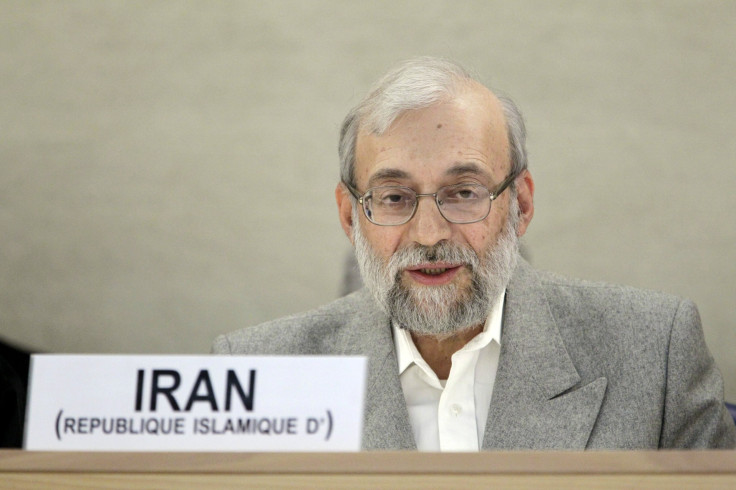Iran Defends Human Rights: Top Official Says West Should 'Look Into' Merits Of Iranian Law

Iran fired back at the West after a United Nations human-rights report slammed the Islamic republic over its high rate of executions and strict Sharia policies. The 28-page U.N. report came shortly after Reyhaneh Jabbari, 26, was hanged for killing a man she said tried to rape her.
Mohammad Javad Larijani, secretary general of Iran’s High Council for Human Rights, defended Iran’s “qisas” system, which allows a victim’s family personal retribution per provisions of Islamic law, according to Reuters. For example, a victim’s family is permitted to determine whether to execute a person convicted of killing a loved one. Referring to Jabbari’s case, Larijani suggested Western countries should adopt the legal concept themselves.
The Iranian law gained international attention in April when the parents of a murdered man spared the life of his killer at the last moment, as the Guardian reported. The man’s mother slapped the condemned killer in the face and untied his noose.
In Jabbari’s case, Larijani said: “We were not successful to solicit forgiveness from the hearts of victims. So the execution went on. Though we are very sorry that two nationals lost lives, but capital punishment, or ‘qisas’ is a unique particularity of our system. I think it worth Western countries to look into it.”
Larijani explained that his office attempted to convince the family members to forgive the killer, but they refused because of the “media blitz” over the case. Larijani is Iran’s point man in defending the country’s human-rights record. He called Iran a “pioneer of human rights” when a similar U.N. report critical of the situation in the country was released in 2012, as the nation’s official PressTV said at the time.
“The idea that only good things in Western community -- the ‘West and the rest’ -- this is a very destructive idea of human rights,” Reuters quoted Larijani as saying Friday.
Ahmed Shaheed, who was heavily involved in the prepartion of the U.N.’s recent report, said he was “shocked” at the execution of Jabbari, according to Reuters. He noted there has been a “surge in executions” in Iran during the past 12-15 months, which corresponds with President Hassan Rouhani’s time in office. Before taking office, Rouhani was seen by the international community as a moderate who could help improve Iran’s human-rights record.
The U.N. report was particularly critical of the “excessive use of capital punishment” and a lack of fair trials in Iran, which executed 852 people between July 2013 and June 2014. The report chastised authorities for a failure to protect women against domestic abuse and for institutionalized discrimination against women, particularly within the legal system. It also criticized Iran’s alleged torture violations in state prisons and its punishment of Iranians exercising free speech.
© Copyright IBTimes 2025. All rights reserved.






















